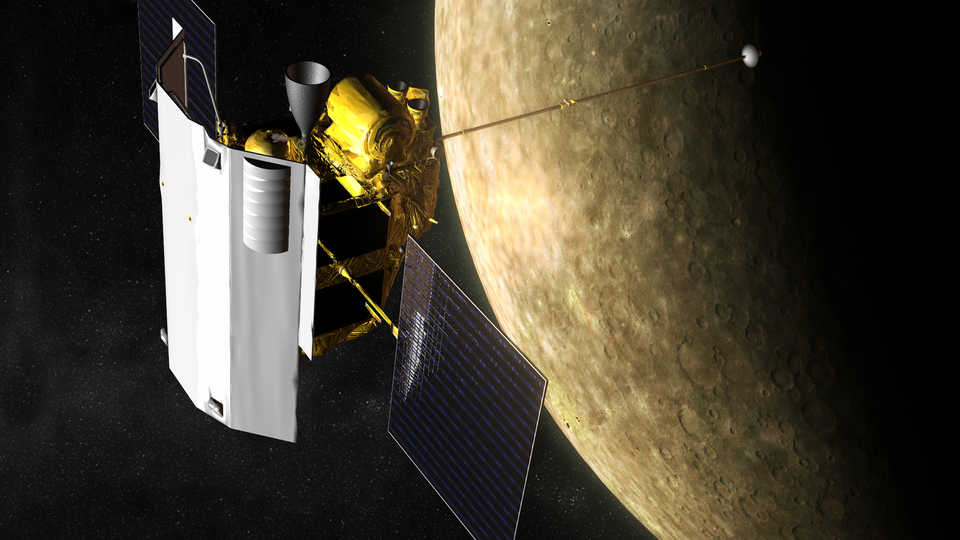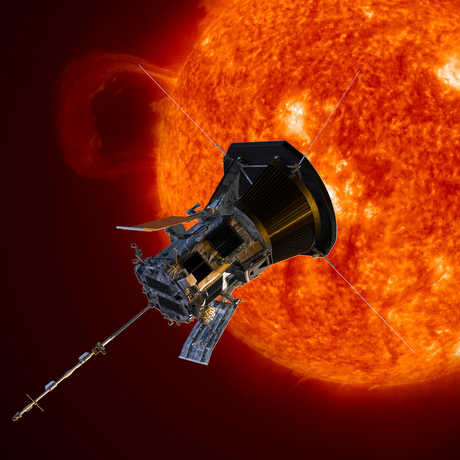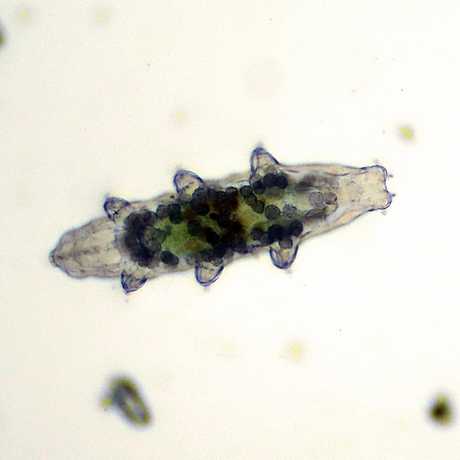Something is wrong at NASA. I don’t know where it started, but I can see where it’s headed, and it terrifies me. It started as some harmless fun, a way to keep names short and sweet. But it’s spread, and it’s getting worse—so much worse. It’s become a hideous affliction that has twisted the very way we think about names.
NASA needs to quit abusing acronyms.
It wasn’t always this way. NASA was founded on names like Mariner, Apollo, and Viking. Good, strong, reasonable names. Then, Voyager and Skylab. They were unique and evocative and sometimes held clues to what the mission was about. When they used acronyms, they did so responsibly. I mean NASA itself is an acronym, and a good one at that! It takes National Aeronautics and Space Administration from a horrifying fourteen syllables to a much more manageable two.
I should clarify that I have no problems with initialisms (when you actually pronounce the letters e.g., ISS, K2), because it’s clear that it’s an abbreviation. It’s immediately apparent that you’re using shorthand and to maybe take a fraction of a second to mentally acknowledge the full name. There’s no moment of mental dissonance when you have to parse ISS as the actual name of the International Space Station—its clear from the start.
And certainly some acronyms are okay, like NEAR, which stands for Near Earth Asteroid Rendezvous. It was a mission that went to a near Earth asteroid and rendezvoused. It’s about as dense as possible, and the acronym is almost an initialism in its simplicity. It’s clear from the outset that it’s an acronym, so you never have any moments of confusion about it.
What I struggle with is missions like MESSENGER, which, while it would be a perfectly serviceable name actually stands for Mercury Surface, Space Environment, Geochemistry and Ranging Mission, a name so long there are commas in it! Now that you know its full title, you’re supposed to mentally substitute MESSENGER with “Mercury Surface, Space Environment, Geochemistry and Ranging Mission.” Go ahead, I’ll wait...
The abbreviation isn’t there to make talking about it easier, rather the abbreviation is intended to be the name itself. The “real” name is now too long and feels contrived.
MESSENGER is far from an isolated event. Here are some of the worst of the bunch:
-
SMART-1 (Small Missions for Advanced Research in Technology-1)
-
MAVEN (The Mars Atmosphere and Volatile EvolutioN)
-
CALIPSO (The Cloud-Aerosol Lidar and Infrared Pathfinder Satellite Observation)
-
CYGNSS (Cyclone Global Navigation Satellite System)
-
DISCOVER-AQ (Deriving Information on Surface conditions from Column and Vertically Resolved Observations Relevant to Air Quality)
-
InSIGHT (Interior Exploration using Seismic Investigations, Geodesy and Heat Transport)
When NASA first started using acronyms in the 1990’s, they were simple and effective. Both NEAR and NSCAT (NASA Scatterometer) are examples of acronyms done right. Within two decades, however, we had monstrosities like OSIRIS-REx. They even brought Stardust out of retirement and “rebranded it” as Stardust-NExT (Stardust-New Exploration of Tempel 1).
And the future is looking bleaker than ever. Ten out of the seventeen missions on NASA’s upcoming missions are acronyms, including two of the worst yet: INSPIRE (The Interplanetary NanoSpacecraft Pathfinder In Relevant Environment project) and SPHEREx (The Spectro-Photometer for the History of the Universe, Epoch of Reionization and Ices Explorer).
It’s time to clean up your act, NASA.
I’ve heard the argument that it’s just NASA having fun, and that it’s harmless. I disagree—as we know from politics, names have power. A name is our first impression and part of our mental filing system.
Nobody would hear “Messenger” and assume it’s a horrifically awkward acronym. When they are informed that it is, they’re being told that what they thought is wrong. Then they’re told that nobody uses that name anyways so they were actually right in the first place to assume that’s its name. What a fun game!
Those of us steeped in astronomy have learned to assume everything is an abbreviation of some contrived name we will never even hear aloud. For three years I assumed the “Dean” in our Dean Lectures series was an acronym (it’s a name). We’ve all become junkies and it’s time to quit—to go back to our Vikings and our Voyagers. Time to let InSIGHT just be a name instead of “technically-not-a-name-but-in-practice-actually-a-name.” And—for the good of all—rename SPHEREx before it launches and that monstrosity is irrevocably burned into history.
And if you do need to abbreviate, please do so responsibly.
P.S. I didn’t have a good place to put this above, but while writing this, I stumbled across PEPSI (Potsdam Echelle Polarimetric and Spectroscopic Instrument), which is an acronym done right, and I wanted to share its glory with you.




